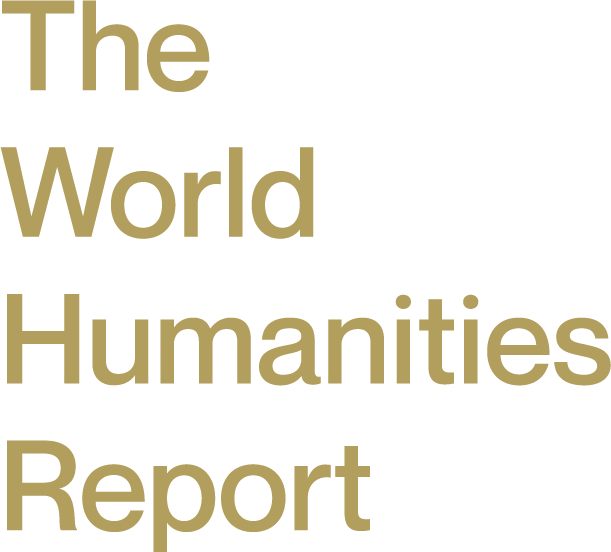Keyword: Global Humanities
Recommendations
Preserve Languages and Language Study
Defend language as a unique window into human understanding, connectivity, and experience. Identify at-risk indigenous languages and implement strategies to ensure their preservation. Support multilingualism and invest in translation of texts and web-based media to ensure that languages remain viable and local knowledge circulates globally.
Facilitate Collaboration and Knowledge That Cuts across Disciplines within and beyond the Humanities
Recognize interdisciplinary and cross-disciplinary collaboration is a condition of improving our understanding of the human condition and addressing grand challenges and SDGs. Strive to integrate the humanities into higher education and research across fields and disciplines.
Recognize the Global Humanities
Value a global approach to the humanities, one that recognizes global entanglements over national interests and that exposes the multiple histories and origins of the humanities including, but not determined by Europe. Emphasize global interconnectedness and support local and regional research in order to provide a fuller and more inclusive understanding of human experience.
Essays
Chapter 3.2 – Western Philosophy in Contemporary China
Chapter 3.1 – Chinese Philosophy
Chapter 9.5 – The Past, Present, and Future of Humanities General Education in Chinese Universities
Chapter 1.5.1 – Foreign Literature in China: English and American
Chapter 1.1 – Classical Chinese Literature
Chapter 11.4 – Research on Chinese Dialects
Chapter 11.2 – Historical Chinese and Grammar Usage
Chapter 11.1 – Modern Chinese Language
Chapter 1.5.5 – Foreign Literature in China: Latin American
Chapter 1.5.4 – Foreign Literature in China: African
Chapter 1.5.3 – Foreign Literature in China: Japanese and Asian
Chapter 1.5.2 – Foreign Literature in China: Russian and European
Chapter 1.3 – Contemporary Chinese Literature
Chapter 1.2 – Modern Chinese Literature
Chapter 9.3 – The Expansion of Foreign Language Education in China
Chapter 9.2 – Bilingual Education in Ethnic Minority Areas in China
Chapter 8.3 – Digital Humanities in China, 1980–2020
Chapter 7 – Unearthed Bamboo and Silk Documents and the Development of Chinese Humanities
Chapter 5.2 – Journalism and Communication Studies in China
Chapter 5.1 – Comparative Literature and Cultural Studies in China
Chapter 4.2 – Art and Art History in Contemporary China
Chapter 2.3 – World History in China Today
Chapter 2.2 – Modern Chinese History
Chapter 2.1 – Historiography in China
The Multiple Habitations of the Humanities in South Asia
Chapter 6 – Chinese Archaeology
The Humanities in Africa: A Cautious Bibliographic Note
Understanding Amazonia: From Interdisciplinary to Transdisciplinary Challenge
The Contribution of Islamic Feminists to the Production of Knowledge
A Contested Terrain: Education in Emergencies Research
US Branch Campuses in the Gulf as Sites of Imperial and Decolonial Knowledge Production
Deimperialization and Arab Thought
Self Tracing / استشفاف النفس
Troubling South-South Solidarity
Border Crossings: Arab Humanities at Home and Abroad
Critical Humanities in the Arab Region: Trends and Futures
From Theology to the Arts: Dalit Resistance Culture in Tamil Nadu
Unpacking Patriarchies: Feminism and the Humanities in India
The Languages without Borders Network in Brazil

 View PDF
View PDF